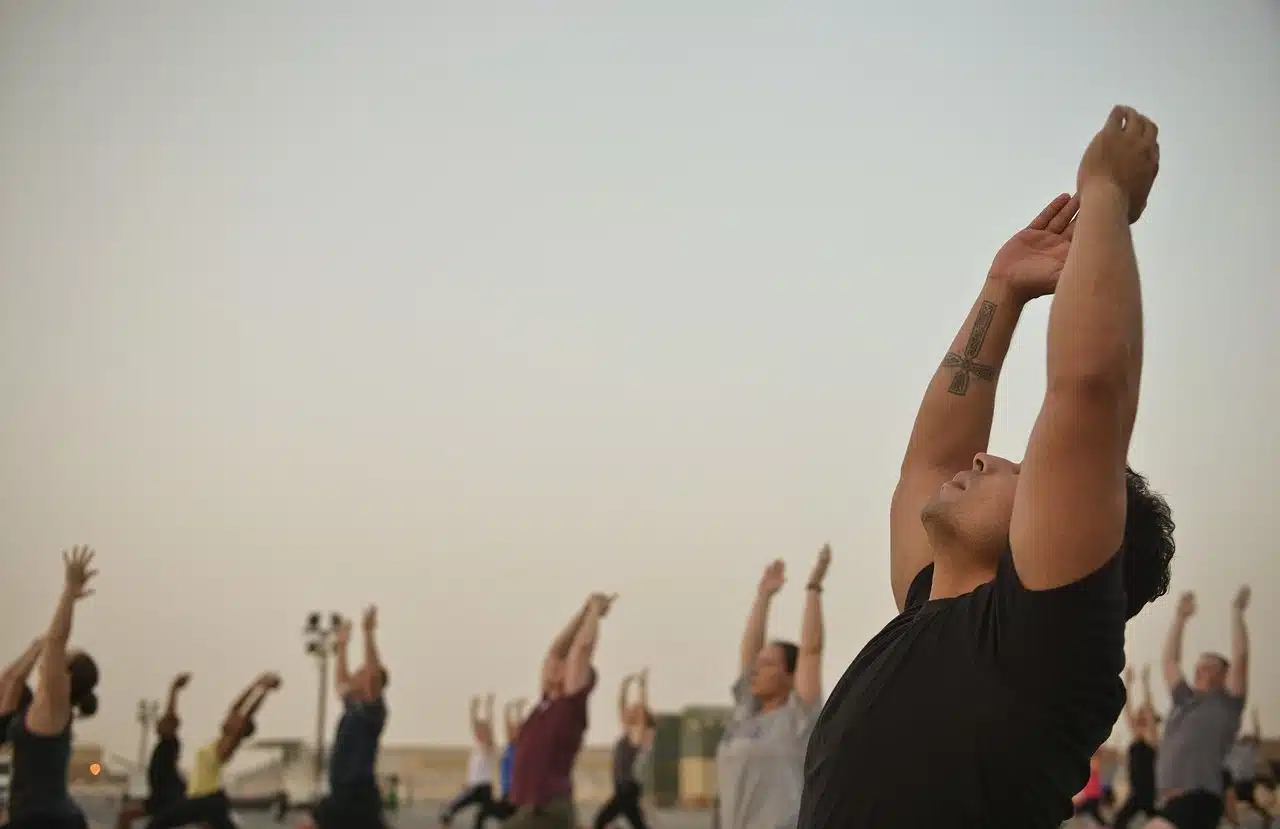
Yoga is a discipline that emerged in India.
Yoga is a Sanskrit term that can be translated as "effort" or "union." The concept has two major applications: on the one hand, it is the set of physical and mental disciplines that originated in India and that seek to achieve spiritual perfection and union with the absolute ; On the other hand, yoga is made up of modern practices that derive from the aforementioned Hindu tradition and that promote mastery of the body and a greater ability to concentrate .
Today, yoga is practiced by those trying to achieve soul integration with God and by those seeking to develop their spiritual consciousness. Yoga is also often considered a type of physical activity that helps improve body stretching and posture .
yoga schools
There are multiple schools and currents of yoga, which usually share the same bases. It can be said in terms of spirituality that, according to the Hindu doctrine on which yoga is developed, the essence of the human being is its soul, which is enclosed in the body. The body, in turn, can be divided into the physical, the mind, the intelligence and the ego.
A full life , according to this vision, is achieved from the satisfaction of physical needs (with health and activities), psychological (access to knowledge and power) and spiritual needs (the search for inner peace and happiness through of detachment). By satisfying these needs, the being is in harmony.

Yoga provides physical and spiritual benefits.
Physical benefits
Among the numerous benefits of yoga, we can highlight the physical ones. It should be noted that there is yoga for children, yoga for the elderly, prenatal yoga and other variants according to the needs and possibilities of each person. On a general level, yoga postures cause this discipline to generate numerous positive effects on the body:
- It increases the body's energies , frees it from toxins, reinforces its natural defenses against diseases and stimuli from its environment and optimizes its functioning.
- Improves the flexibility of muscles and joints, providing more vitality and agility .
- It increases physical strength , working the muscles while improving the general appearance of our body.
- It collaborates with the stimulation of metabolism and anabolic processes, with the circulation of energy and with the oxygenation of the body.
- Thanks to the greater production of endorphins, it contributes to the reduction of pain and inflammation caused by some physical conditions, generating a state of relaxation.
- Yoga is considered by many as a holistic medicine that prevents and heals chronic diseases; Various investigations ensure that it improves the condition of patients suffering from asthma, chronic fatigue, arthritis and arteriosclerosis, among other disorders.
- It helps improve breathing , which has a direct impact on the health of the organs, in addition to teaching how to make better use of energy.
- Protects the integrity of the spine, thanks to the improvement of posture; The discs suffer less deterioration than normal, due to blood supply and greater flexibility.
- It is a natural fight against aging, a way to achieve stress relief that restores to our body the fluidity that we lose by allowing problems to invade us.
- Through specific exercises, it helps stimulate internal organs; The positive results it produces on the neurological, endocrine, digestive and respiratory systems stand out.
- It combats the risks of high blood pressure and helps control your cholesterol and sugar levels, in addition to improving the production of antioxidants.

A yoga teacher acts as a guide.
Contributions of yoga to mental health
Yoga is based on a holistic health perspective, promoting balance of body and soul. The discipline can be complemented with other practices, such as meditation on a yoga mat while repeating mantras , to mention one possibility.
The daily practice of yoga, in short, provides many benefits on the emotional level:
- It generates calm and sharpens the brain, giving us greater emotional and mental stability and contributing to self-realization.
- It is a good resource to fight depression .
- Helps combat episodes of anger and panic.
- It improves our resistance to stress, anxiety control and full attention focus on the important issues of our daily lives, preventing problems from drowning us.
The philosophy
The philosophy of yoga is a path that is outlined for self-realization. Four different paths are usually recognized: bhakti yoga (devotion), jnana yoga (wisdom), raja yoga (mental control) and karma yoga (action).
The yoga of devotion or bhakti yoga is linked to surrender to God; the yoga of wisdom or jnana yoga, to self-knowledge until achieving detachment; integral yoga or raja yoga, to control the mind; and action yoga or karma yoga, to leave the ego behind so that the karma associated with samsara (the cycle of life, death and reincarnation) is positive.
Sometimes there is talk of a fifth way: tantra yoga , which includes hatha yoga . In this case, maximum use of energy is sought.
It cannot be failed to mention that the philosophy of yoga is also associated with various concepts that transcend it, such as the comprehensive medicinal system known as Ayurveda ; the energy centers called chakras ; sattvic food (pure foods that are easily digested and minimize the accumulation of toxins); dharma (righteous conduct) and nirvana (enlightenment). These ideas may appear in other disciplines or areas, such as the Zen Buddhist school, Tai Chi martial art, and the Pilates method.
